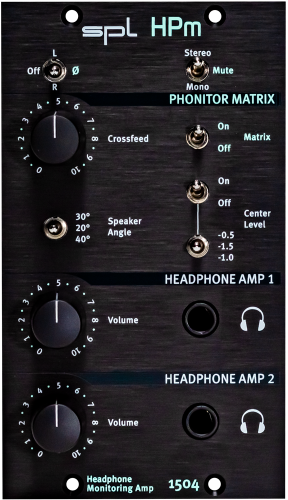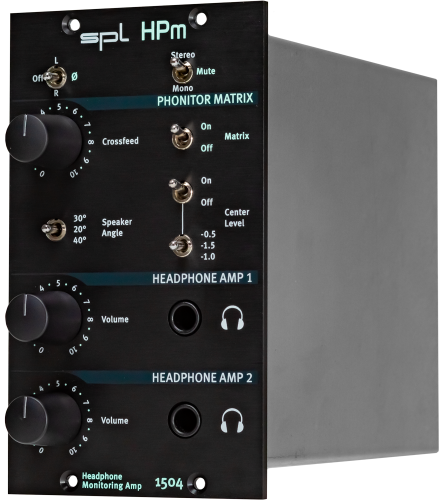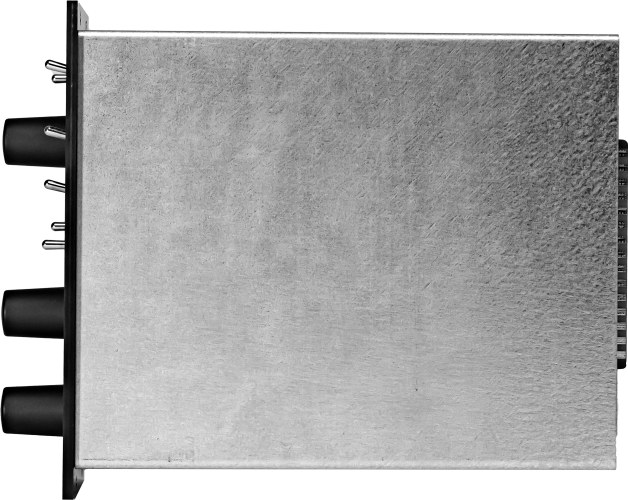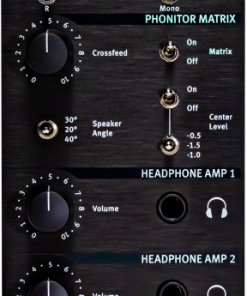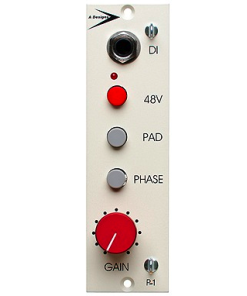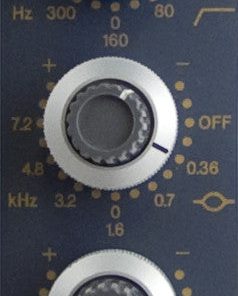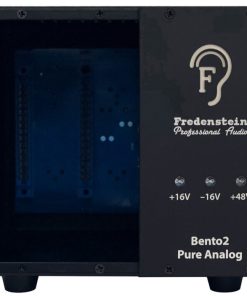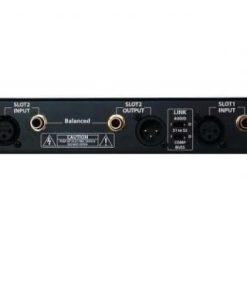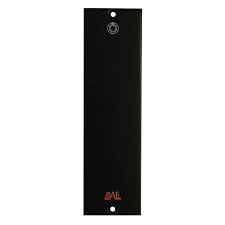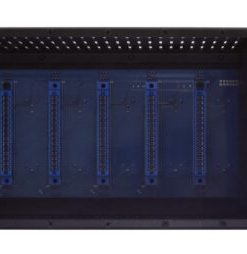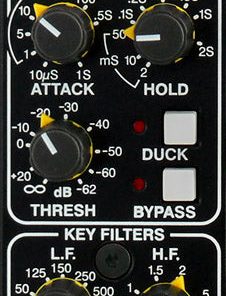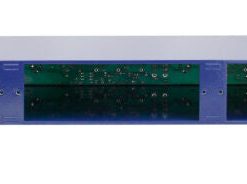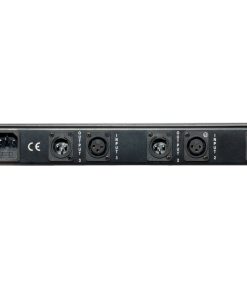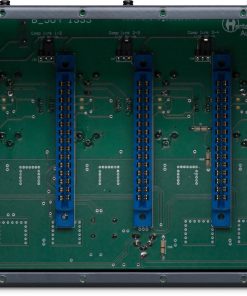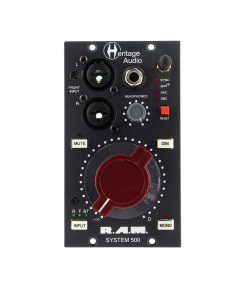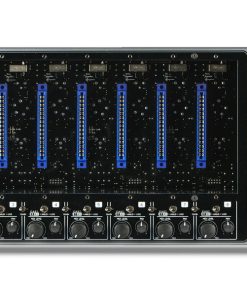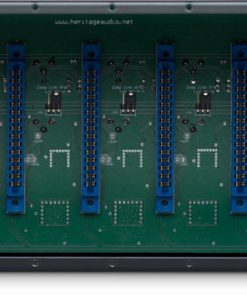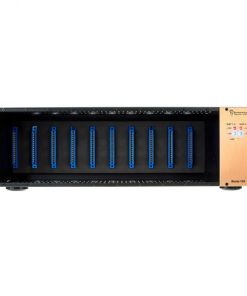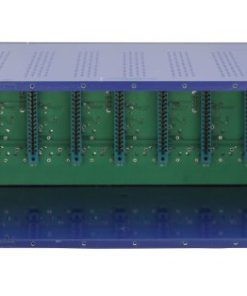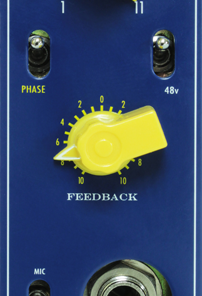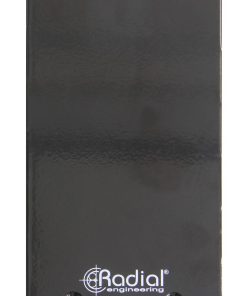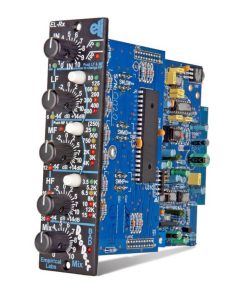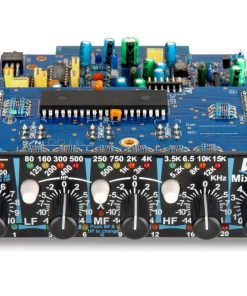SPL HPm – Dual Headphone Amplifier SPL
$ 399,00 $ 119,70
The Headphone Monitoring Amplifier for 500 Series.
500 Series double-slot module headphone monitoring amplifier with Phonitor Matrix for two headphones.
The headphone output stage
The HPm delivers full headphone sound – twice!
The output stage of the headphone amplifiers is designed as a push-pull amplifier in Class AB mode. The bipolar transistors share the amplification of the positive and negative half-waves, which produces a higher gain and a higher output voltage than in Class A operation, where only one transistor amplifies both half-waves.
The output stage transistors are thermally coupled and thus run particularly coherently, which contributes to a consistent and stable sound image. The power supply has a buffer circuit with low source resistance, ensuring generous current reserves even when operating low-impedance headphones. Both headphone amplifiers provide an individual volume control.
Stereo/Mono/Mute
The audio signal can be switched between stereo and mono. In the Mute position, the headphone outputs are muted.
Phase Inverse Ø
With the phase inversion switch the phase the of the left or right channel can be inverted (180°).
Tip: M/S – Mid or Side?
By using the MONO and the phase invert switch in combination, it is possible to only monitor the
M or S signal. When “Mono mode” and phase inversion is active, only the S signal is played back.
If the phase inversion is switched off, the Mono signal corresponding to the M signal is played back. Separate monitoring of the M and S signals has become a standard for many mixing and mastering engineers.
The revolution in the headphone amplifier:
Phonitor Matrix
The Phonitor Matrix enables mixing and mastering engineers to create perfect mixes on headphones, which will translate perfectly to all types of stereo speaker systems.
Wie ist das möglich?
Music is normally produced and mixed for playback on stereo speakers.
Listening on headphones is different from listening on loudspeakers. The biggest difference is the
lack of crossing signals of the sound signal from the left speaker to the right ear and from the right speaker to the left ear. These crossing signals are missing in conventional headphone listening, because there are no signals crossing from one side of the headphones to the other. This results in an unnaturally wide stereo stage and sound sources are not played back at their correct position in
the stereo field.
The SPL Phonitor Matrix can correct this false stereo image with an analog circuitry.
The Phonitor Matrix parameters
The two main parameters of the Phonitor Matrix are Crossfeed and Angle:
• Crossfeed determines the opening angle of the stereo image.
• Angle determines the opening angle of the stereo image.
Crossfeed
The “Crossfeed” parameter of the HPm is continuously adjustable via the crossfeed control.
Speaker Angle
The “Angle” parameter can be adjusted in three settings: 20°, 30° and 40°. The studio standard is 30°.
Center Level
To make the listening experience even more perfect, the level of the center of the stereo image needs to be attenuated when the Phonitor Matrix is active. This ensures that not only the position of all sound sources is correct but also their volume. With HPm, this parameter, which we call “Center” in the Phonitor Matrix, can also be adjusted in three settings. You can choose between an attenuation of -0.5dB, -1 dB or -1.5 dB. The standard for an authentic representation of the stereo image is -1 dB. During conventional listening on headphones, our brain can compensate a certain level of false playback representation – but this is very exhausting and leads to listening fatigue.
Summed up
The SPL Phonitor Matrix corrects the false representation of the stereo sound image, which makes it much easier to find the right decisions for mixing and mastering engineers. So nothing stands in the way of a successful and long mixing session on headphones.
Prompt Delivery and Professional Packaging
Our long-standing partnership with UPS FedEx DHL and other global carriers lets us offer a range of shipping services. Our warehouse staff is extremely skilled and will package your items according to our precise and exact specifications. Your goods will undergo an extensive inspection and be safely packaged prior to being sent out. Each day, we ship to thousands of customers in many countries. The fact that we are committed to becoming the biggest online retailer in the World is clear. These warehouses are in Europe in the same way as they are in USA.
Note: Orders that include more than one item are assigned a processing period depending on the item.
Before shipping, we will inspect thoroughly the items you have ordered. Most orders are shipped within 48 hours. Expected delivery time is between 3-7 days.
Returns
Stock is dynamic. It's not entirely managed by us since we are involved with multiple entities, including the factory and the storage. The actual stock can change at any moment. It is possible that your order may be out of stock once the order has been placed.
Our policy lasts for 30 days. We cannot exchange or refund your order if it has been 30 days from the date of purchase.
For your item to be returned it must be in its original packaging, unopened and in the condition you received it. The item must be in its original packaging.
Related products
500 Series
500 Series
500 Series
500 Series
500 Series
500 Series
500 Series
500 Series
500 Series
500 Series
Cranborne Audio 500R8 USB Audio Interface with 8-Slot 500-Series Rack 2023 *B-Stock* Cranborne Audio
500 Series
500 Series
500 Series
500 Series
500 Series
